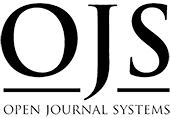Soft skills for the 21st century workforce
Keywords:
Soft skills, personal attributes, Requirement, working marketAbstract
Soft skills are personal attributes that make the difference between one professional and another, regardless of their disciplinary area. The key differentiator is that these competencies are not related to the work that is done, but to how it is worked. For this reason, they are not specific to a single job and leave the new workforce well prepared for a rapidly changing landscape, where adaptation to new environments is essential. For this reason, employers are currently looking for a workforce that has both soft and hard skills. In this context, this study seeks to identify the 10 most important soft skills for good performance in the Chilean labor market. The sample corresponds to 45 executives from medium and large companies. The information is collected through a Likert scale questionnaire, self-administered online. The results show that the industry places great value on effective communication, problem solving, critical thinking, teamwork, adaptability, creativity, coordination, time management, work ethic and negotiation (M = 4,080).
References
Bailly, F., & Lene, A. (2013). The personification of the service labour process and the rise of soft skills: A French case study. Employee Relations, 35, 79-97. https://doi.org/10.1108/01425451311279429
Balcar. J. (2017). Is it better to invest in hard or soft skills? The Economic and Labour Relations Review, 27(4), 2017, 453-470. https://www.researchgate.net/deref/http%3A%2F%2Fjournals.sagepub.com%2Fdoi%2Ffull%2F10.1177%2F1035304616674613
Boostrs (2020). The importance of soft skills of soft skills in the job market in the job market.
An analysis of the soft skills demand by job, function and seniority level. https://boost.rs/wp-content/uploads/2020/11/BOOSTRS_SOFT_SKILLS_STUDY_2020.pdf
Connell, J., Gough, R., McDonnell, A., y Burgess, J. (2014). Technology, work organization and job quality in the service sector: An introduction. Labour & Industry, 24, 1-8. https://doi.org/10.1080/10301763.2013.877117
Heckman, J. y Rubinstein, Y. (2001). The Importance of Noncognitive Skills: Lessons from the GED Testing Program. American Economic Review 91(2):145-149. https://www.aeaweb.org/articles?id=10.1257/aer.91.2.145
Hyder, H., Mahmood, Z. y Hamid, S. (2020). Soft skills: a research study on outdoing academics and conquer the World. PJAEE, 17(7), 7805-7815. https://archives.palarch.nl/index.php/jae/article/view/3412
James R. F. y James M. L. (2004). Teaching Career and Technical Skills in a Mini World of Business. Business Education Forum, 59(2), 39-41
John, J. (2009). Study on the Nature of Impact of Soft Skills Training Programme on the Soft Skills Development of Management Students. Research Paper. https://www.researchgate.net/publication/228136153_Study_on_the_Nature_of_Impact_of_Soft_Skills_Training_Programme_on_the_Soft_Skills_Development_of_Management_Students
Lowden, K., Hall, S., Ellio, D. D., y Lewin, J. (2011). Employers’ perceptions of the employability skills of new graduates. Edge Foundation.
Redomero, T., Caggiano, V., Poza-Lujan. J. L. y Piccione, V. A. (2019). Fostering and assessing soft skills of engineering students. The International journal of engineeringeducation, 35(6), 1656-1666. https://dialnet.unirioja.es/servlet/articulo?codigo=7350183
Seetha, N. (2014). Are soft skills important in the workplace? A preliminary investigation in Malaysia. International Journal of Academic Research in Business and Social Science, 4, 44-56. http://citeseerx.ist.psu.edu/viewdoc/download?doi=10.1.1.684.6235&rep=rep1&type=pdf
Sheikh, S. (2009). Alumni perspectives survey: Comprehensive data report. Reston, VA: Graduate Management Admission Council. https://www.gmac.com//media/files/gmac/research/measuring-program-roi/apr09alumni_cdr_web.pdf
Universidad de Deusto (2003). Tuning Educational Structures in Europe. Informe Final Fase Uno. ISBN: 978-84-9830-642-2 http://tuningacademy.org/wp-content/uploads/2014/02/TuningEUI_Final-Report_SP.pdf
Vasanthakumari, S. (2019). Soft skills and its application in work place. World Journal of Advanced Research and Reviews, 3(02), 066–072. https://www.researchgate.net/deref/https%3A%2F%2Fdoi.org%2F10.30574%2Fwjarr.2019.3.2.0057
Vera, F. y Tejada, E. (2020). Developing soft skills in undergraduate students: A case at a Chilean private university. Transformar, 1(1), 57–67. Recuperado a partir de https://revistatransformar.cl/index.php/transformar/article/view/12
Vera, F. (2017). Infusión de habilidades blandas en el currículo de la educación superior: clave para el desarrollo de capital humano avanzado. Revista Akademèia 7(1), 53-73. https://revistaschilenas.uchile.cl/handle/2250/35695
World Economic Forum (2020). The Future of Jobs Report 2020. http://www3.weforum.org/docs/WEF_Future_of_Jobs_2020.pdf








